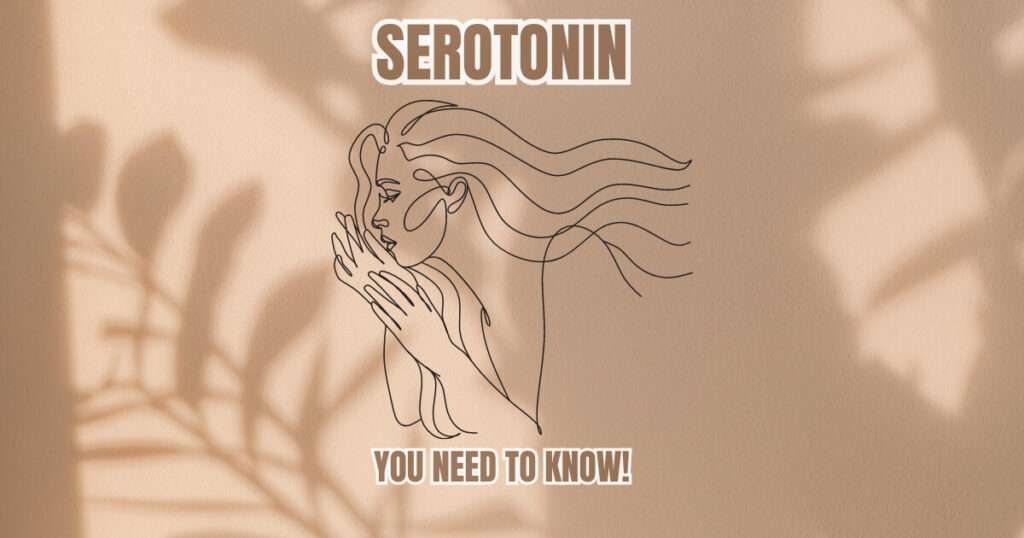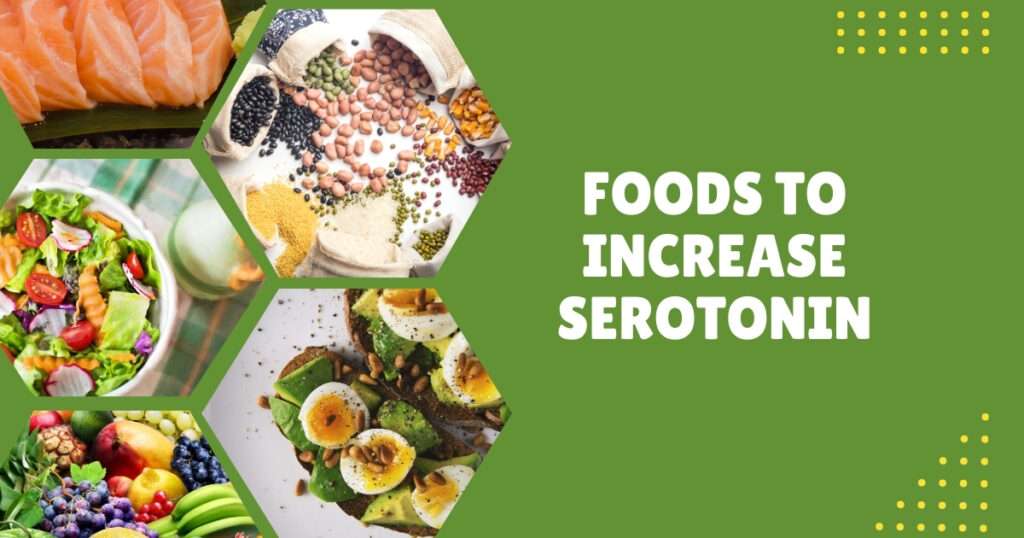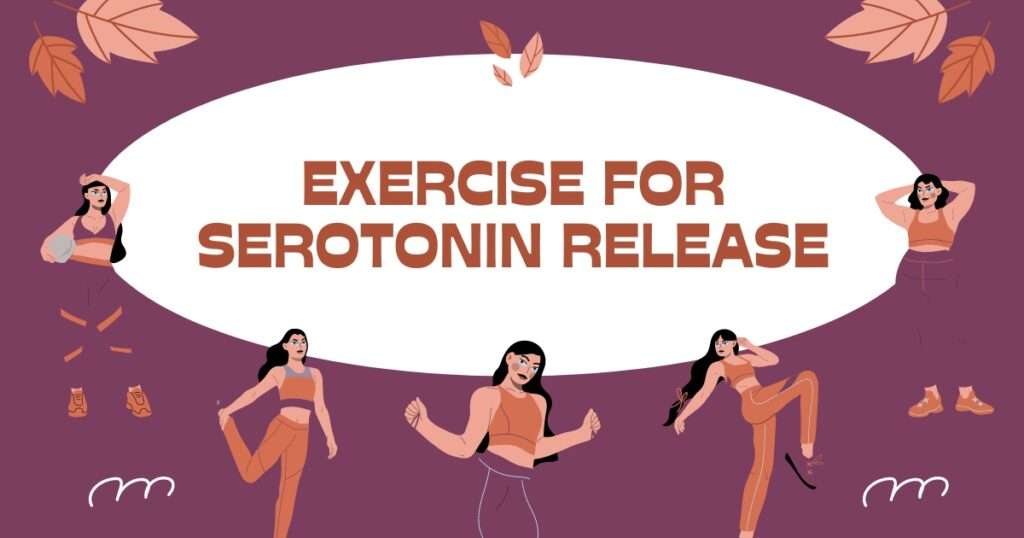
Before raising the question “how to increase the serotonin level” we have to know what serotonin is and why it is too important to increase.
What is Serotonin?
Serotonin, often dubbed the ‘happiness hormone’, is pivotal in regulating mood, sleep, and appetite. Keeping serotonin levels high is crucial for maintaining mental health and general well-being. Exercise is one of the most effective ways to boost serotonin production naturally; it triggers the release of tryptophan into the blood, which the brain converts to serotonin.
A diet with tryptophan-rich foods like eggs, cheese, turkey, and nuts can also support serotonin synthesis. Seek out sunlight, as it can have a direct, positive effect on serotonin. To augment these efforts, stress management techniques, such as meditation or yoga, can help prevent serotonin depletion and support overall mental health. Adopting these simple, every day habits can naturally help increase your body’s serotonin levels and improve your mood.
The Serotonin Effect
‘The Serotonin Effect’ – a journey into understanding the importance of the neurotransmitter serotonin in our body, its roles, and how maintaining optimal levels can profoundly affect our well-being.
Key Roles Of Serotonin
Serotonin is a star player in the game of health and happiness. Sometimes called the ‘happy chemical’, it has a basket full of roles:
- Mood regulation: Like a thermostat for emotions, serotonin keeps mood balanced.
- Sleep cycle control: It whispers ‘goodnight’ to the brain, guiding us to dreamland.
- Appetite tuning: Like a wise dietitian, serotonin helps manage food cravings and digestion.
- Memory and learning: It sharpens the mind, enhancing the capacity to learn and remember.
- Pain management: Serotonin can also act like a natural painkiller, soothing discomfort.
These critical roles illustrate serotonin is essential for a happy, healthy life.
Low Serotonin Symptms
Not enough serotonin can dim life’s sparkle. Look out for these tell-tale signs:
Signs | Explanation |
Sadness | A persistently low mood might hover |
Sleep issues | Falling or staying asleep becomes tough |
Appetite changes | Cravings spike, especially for sweets |
Memory problems | Brain fog may settle in, causing forgetfulness |
Chronic pain | Aches linger longer, with heightened sensitivity |
Note: Spotting these signs early can steer us towards action to boost serotonin levels, brightening life’s outlook.

Food that increases serotonin levels
Serotonin is key for a happy mood. Think of it as a happiness helper in your body. You can boost it with tasty foods! Let’s explore some great choices that can help your brain make more serotonin. These foods have special parts that our bodies use to create this happy chemical.
Tryptophan-rich Foods
Eating tryptophan-packed foods helps boost serotonin. Tryptophan is like a building block for serotonin. Here are some top foods full of it:
- Eggs – The white part is especially rich in tryptophan.
- Cheese – Try cheddar for a yummy option.
- Pineapples – Bonus, they’re also super juicy and sweet!
- Tofu and soy – Plant power for a serotonin surge.
- Salmon – A double win with omega-3s and tryptophan.
- Nuts and seeds – A handful can go a long way.
- Turkey – Not just for holidays, turkey is packed with tryptophan.
Complex Carbohydrates Influence
Complex carbs help tryptophan reach the brain more easily. This means more serotonin can be made! Here are some smart carb choices:
Food Type | Examples |
Whole Grains | Oats, quinoa, brown rice |
Vegetables | Spinach, broccoli, sweet potatoes |
Legumes | Lentils, beans, chickpeas |
Fruits | Berries, apples, bananas |
By adding these smart carbs and tryptophan-rich foods to your diet, your serotonin levels can get a natural boost. This can lead to better mood, sleep and overall happiness!
Impact Of Diet On Serotonin
The foods we eat deeply affect our serotonin levels. Serotonin, a key hormone that stabilizes our mood, feelings of well-being, and happiness, can get a significant boost from the right dietary choices. This neurotransmitter also helps with sleeping, eating, and digestion. Let’s explore how incorporating certain foods into our diet can improve our serotonin levels and overall health.
Healthy Fats And Serotonin
Healthy fats are vital for brain health and serotonin production. Foods rich in omega-3 fatty acids, like salmon, flaxseeds, and walnuts, can increase brain serotonin levels. These fats help make serotonin more available to the brain. This is pivotal for mood regulation and cognitive functions.
- Salmon: Offers omega-3 DHA which supports brain function.
- Flaxseeds: Contains ALA, another type of omega-3 fat.
- Walnuts: Another excellent source of omega-3 fats.
Probiotics And Gut Health
Healthy gut, happy mind. The gut is known as the second brain, and it produces about 95% of the body’s serotonin. Probiotics found in fermented foods like yogurt, kefir, and sauerkraut can improve gut health. This, in turn, may lead to enhanced serotonin levels. A strong and healthy digestive system lays the groundwork for optimal serotonin production.
Fermented Food | Probiotic Content | Benefits |
Yogurt | Lactobacillus | Improves digestion |
Kefir | Mixed probiotics | Bolsters immune system |
Sauerkraut | Lactobacillus plantarum | Enhances gut flora |
To foster a serotonin-friendly diet, balance is key. Include a mix of healthy fats and probiotic-rich foods for the best results. Remember, a varied diet fuels not just your body, but also your mental health.

supplements that raise serotonin
To boost your mood and well-being, incorporating serotonin supplements into your daily routine can be beneficial. Serotonin, a crucial neurotransmitter, affects mood, sleep, and appetite. While lifestyle changes are vital, supplements may offer extra support in increasing serotonin levels. Let’s explore some effective options available.
5-htp And L-tryptophan Supplements
5-Hydroxytryptophan (5-HTP) and L-Tryptophan are amino acids linked to serotonin production. Your body converts both into serotonin with 5-HTP being one step closer in the process. A balanced diet aids in acquiring these nutrients, while supplements serve as a direct boost.
- 5-HTP can cross the blood-brain barrier, aiding in serotonin production.
- L-Tryptophan can be found in protein-rich foods but supplemented for ease.
Vitamins B6 And D For Support
Vitamins B6 and D play supportive roles in serotonin synthesis. They help convert 5-HTP and L-Tryptophan to serotonin effectively. Vitamin B6 is a coenzyme in this process, while Vitamin D’s role is still being researched but appears promising.
Vitamin | Role in Serotonin Production | Additional Benefits |
B6 | Coenzyme in converting 5-HTP to serotonin | Supports immune function and brain health |
D | Assists in overall mood enhancement | Promotes bone health and immune response |
Regular and appropriate doses of these supplements might aid serotonin increase. However, it is essential to seek advice from healthcare professionals before starting any new supplement regimen.
Exercise For Serotonin Release
Feeling down or stressed? Boosting your serotonin levels may help improve your mood. One of the most effective ways is through exercise. Engaging your body in physical activity stimulates the production of this key neurotransmitter. Let’s explore how different types of exercises can help you release serotonin and the vast benefits regular exercise brings to your mental health.
Types Of Exercise That Boost Serotonin
Different exercises have different impacts on serotonin release. Choose activities you enjoy to keep the motivation high. Here are some top picks:
- Aerobics – From dancing to running, get your heart pumping.
- Yoga – Blend mindfulness with movement for a serene boost.
- Strength training – Lifting weights can lift your spirits too.
- Outdoor activities – Sunlight complements exercise for serotonin.
Regular Physical Activity Benefits
Consistent exercise is key for long-term mood enhancement. Here’s what it offers:
Benefit | Description |
Improved Mood | Exercise releases endorphins and serotonin. |
Better Sleep | Regular activity promotes restful sleep. |
Stress Relief | Physical exertion lowers stress hormones. |
Increased Energy | Boosted circulation means more vitality. |

Light Exposure And Serotonin
Light exposure significantly affects your body’s serotonin levels. This neurotransmitter is crucial for feeling happy and stable. Serotonin impacts mood, sleep, and digestion. Understanding how light influences its production is key to maintaining well-being.
Sunlight And Serotonin Production
Our bodies thrive under the sun’s rays, with sunlight acting as a natural serotonin booster. Regular exposure to sunlight can lead to higher serotonin levels. Here’s why outdoor activities are not only fun but also essential for mental health.
- Boost your mood: Daily sunlight exposure enhances serotonin production.
- Manage your circadian rhythm: Natural light helps regulate sleep patterns.
- Improve focus: Sunlight can help sharpen concentration.
Bright Light Therapy
Bright light therapy is a method to increase serotonin without the sun. It involves sitting near a device called a light therapy box. This box emits light that mimics natural sunlight.
- Select a high-quality light therapy box.
- Position the box about 16 to 24 inches away while engaging in morning activities.
- Include this routine for about 20 to 30 minutes daily, preferably in the morning.
Mind-body Techniques
Feeling down can sometimes be linked to low serotonin levels. Serotonin is a key hormone that stabilizes mood, feelings of well-being, and happiness. This hormone impacts your entire body. It enables brain cells and other nervous system cells to communicate with each other. Serotonin also helps with sleeping, eating, and digestion. To boost these levels naturally, mind-body techniques can be powerful. These practices unite the psychological aspects of your mind with the biological functions of your body.
Mindfulness And Meditation
Mindfulness is a form of meditation where you focus on being intensely aware of what you’re sensing and feeling in the moment. It can reduce stress and increase serotonin.
- Find a quiet space
- Focus on your breath
- Notice each thought
- Do not judge your thoughts
- Practice regularly
Duration | Effect on Serotonin |
5 minutes | Mild boost |
15 minutes | Moderate boost |
30+ minutes | Significant boost |
Yoga And Tai Chi
Yoga and Tai Chi are ancient practices that improve flexibility, strength, and balance. They also increase serotonin levels and enhance mood.
- Join a class or find videos online
- Practice consistently
- Combine with mindful breathing
These activities are not just for your body. They soothe your mind too. They need focus and controlled movements, which improve serotonin.
Serotonin And Sleep Patterns
Serotonin, often called the ‘happiness hormone,’ plays a key role in regulating sleep. Good sleep boosts serotonin levels, which in turn, improves sleep quality. It’s a beneficial cycle. Below are tips to harness that power through sleep hygiene.
Better Sleep For Serotonin Levels
Quality sleep can enhance serotonin production. Keeping a bedroom dark and cool aids in falling asleep quickly. Adding a few plants may improve air quality. Comfortable bedding also contributes to a night of restful sleep.
- Make the room dark with blackout curtains
- Maintain a cool temperature around 65°F (18°C)
- Invest in a supportive mattress and pillows
- Use white noise machines to block out sound
Establishing A Sleep Routine
A consistent sleep schedule is vital. Going to bed and waking up at the same time each day sets the body’s ‘clock’. Warm baths before bed can signal the brain it’s bedtime. Turning off electronics an hour before sleep aids this too.
- Fix a bedtime and wake-up time, even on weekends
- Engage in relaxing activities before bed, like reading
- Limit blue light exposure from screens
- Avoid caffeine and heavy meals before bedtime
Managing Stress To Regulate Serotonin
Serotonin, a key mood regulator, can get disrupted by stress. Less stress often means more serotonin in your brain. This improves mood and overall well-being. To keep serotonin levels in check, managing stress is crucial.
Stress Reduction Strategies
Adopting stress reduction strategies can lead to a happier, healthier life. Below are effective ways to manage your stress:
- Exercise regularly: Physical activity boosts your body’s feel-good chemicals.
- Get enough sleep: Aim for 7-9 hours each night for optimal rest.
- Eat a balanced diet: Nutrient-rich foods support brain health and mood.
Other strategies include:
- Mindfulness or meditation practices.
- Socializing with friends and family.
- Keeping a positive attitude.
- Learning new skills or hobbies.
- Organizing your time well.
Importance Of Relaxation
Relaxation isn’t just enjoyable; it’s essential. It reduces stress hormones in your body. This helps your serotonin levels to remain balanced. Here are ways to relax:
Relaxation Method | Benefits |
Deep breathing exercises | Promotes calmness and reduces anxiety |
Progressive muscle relaxation | Alleviates tension throughout the body |
Guided imagery | Shifts focus to positive thoughts |
Stress-free hobbies (like gardening or painting) | Boosts creativity and reduces stress |
Integrate relaxation into your daily routine for steady serotonin levels.
Professional Treatments
Many people look for natural ways to lift their mood. Sometimes, professional treatments become necessary for increasing serotonin levels. These treatments can provide powerful ways to improve mental health.
When To Consider Medication
Medication is an option when lifestyle changes are not enough. A doctor may prescribe SSRIs or SNRIs. These are types of antidepressants.
- SSRIs – Selective serotonin reuptake inhibitors
- SNRIs – Serotonin and norepinephrine reuptake inhibitors
These medications help the brain use serotonin more effectively. Always discuss with a healthcare provider before starting any medication.
Cognitive Behavioral Therapy
Cognitive Behavioral Therapy (CBT) is a talk therapy. It helps improve mental health. CBT focuses on changing negative thoughts and behaviors. This can lead to increased serotonin levels.
CBT Components | Benefits |
Identifying Negative Thoughts | Reduces Anxiety |
Practicing New Skills | Improves Daily Functioning |
Problem-Solving | Enhances Coping Strategies |
CBT is often a short-term treatment. It provides long-lasting skills for managing mood.
Frequently Asked Questions On How To Increase Serotonin Levels
How Can I Increase My Serotonin Levels Quickly?
Boost serotonin quickly by exposure to sunlight, engaging in exercise, and eating foods rich in tryptophan, like eggs and salmon. Practice meditation or mindfulness to help increase serotonin levels. Always consult with a healthcare provider before making significant changes to your lifestyle or diet for health purposes.
What Gives The Most Serotonin?
Sunlight exposure and physical activity often lead to the highest natural increases in serotonin levels. Certain foods, like those rich in tryptophan, can also boost serotonin.
What Foods Increase Serotonin?
Foods rich in tryptophan boost serotonin, including eggs, cheese, turkey, nuts, salmon, tofu, and pineapple. Balanced diets enhance overall serotonin levels.
What Are The Symptoms Of Low Serotonin?
Low serotonin symptoms include mood swings, anxiety, depression, sleep issues, appetite changes, and memory problems.
What Foods Boost Serotonin Levels?
Eating foods rich in tryptophan, such as turkey, nuts, seeds, and cheese, can increase serotonin levels, as tryptophan is a serotonin precursor.
Can Exercise Increase Serotonin?
Regular physical activity, especially aerobic exercises like running or cycling, has been shown to elevate serotonin production and release in the brain.
Does Sunlight Affect Serotonin Levels?
Exposure to sunlight can boost serotonin levels by triggering its production in the brain, which is why sunlight generally improves mood.
Conclusion
Boosting serotonin is key for mood and well-being. Simple lifestyle changes can significantly impact your levels. Embrace natural light, exercise, and a balanced diet for best results. Remember, a happy life may just start with happy hormones! Stay healthy, stay joyful.

